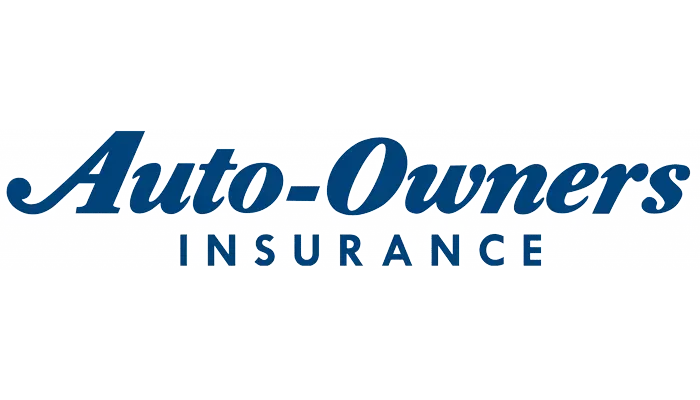TRUSTED BY LEADING Property management companies TEAMS FOR effective tenant coi compliance





Common Tenant COI Verification & Renters Insurance Tracking Challenges

Overwhelming Tenant Certificate Management Workload
Property managers spend 15-20 hours weekly chasing hundreds of tenants for renters insurance certificates, renewals, and compliance verification. With thousands of units across multiple properties, manual tenant COI tracking creates administrative bottlenecks that prevent focus on revenue-generating activities like leasing, tenant retention, and property improvements.

Chasing Tenant Renewals
Tenants consistently ignore renewal notices, let policies lapse without notification, or provide inadequate coverage that doesn't meet lease requirements. Property management staff waste countless hours with phone calls, emails, and lease enforcement actions to maintain renters insurance compliance. Non-responsive tenants create compliance gaps and legal exposure across property portfolios.

Lease Compliance & Legal Risk Exposure
Missing or expired tenant certificates create significant liability exposure when incidents occur without proper renters insurance coverage. Properties face expensive legal costs, insurance claims, and tenant disputes when certificate tracking fails. Inconsistent enforcement across properties creates compliance gaps that put property owners and management companies at financial risk during claims situations.
SimpleCerts eliminates tenant COI verification challenges with intelligent automation designed specifically for renters insurance tracking and property management compliance.

How SimpleCerts makes tenant COI verification & renters insurance tracking effortless

Self-Service Tenant Portals & Renewal Management
Eliminate manual renewal follow-ups with self-service tenant portals that allow renters to manage their own certificate renewals and updates. Automated renewal reminders sent 30, 15, and 5 days before expiration prevent policy lapses while tenant portals provide 24/7 access for certificate submissions and status updates without property management staff involvement.

Central Portfolio Compliance & Real-Time Monitoring
Monitor tenant certificate compliance across entire property portfolios through centralized dashboards that provide instant visibility into renters insurance status. Real-time tracking identifies compliance gaps immediately while automated reporting demonstrates proactive risk management to property owners. Property managers gain complete oversight without manual verification across hundreds or thousands of units.

New Supplier Risk Assessment & Verification
Automatically trigger renters insurance requests during lease signing and tenant onboarding processes. New tenants cannot complete move-in without submitting current certificates while automated verification confirms coverage meets lease requirements. Integration with lease management systems ensures every tenant provides proper insurance without manual property management intervention.
Ready to automate tenant COI verification and eliminate renters insurance compliance headaches?
What our COI Tracker Includes
Complete certificate of insurance management that combines cutting-edge AI technology with expert human verification. SimpleCerts delivers affordable, fully managed COI tracking that eliminates compliance headaches for property managers, contractors, and risk professionals.

Fully managed COI Software Solution
Automated certificate collection, compliance tracking, and renewal management. Upload your requirements once and let our platform handle vendor onboarding, document verification, and ongoing monitoring. Real-time dashboards keep you informed without the manual work.

Most Affordable COI Solution
Enterprise-grade certificate of insurance software at small business prices. No hidden fees, setup costs, or per-user charges. Get unlimited policyholder certificates, automated compliance alerts, and dedicated support starting at industry-leading rates.

Human COI Verification Included
When compliance issues arise or certificates need follow-up, our certified risk management professionals step in to handle vendor communication and resolution. You get AI-powered efficiency with human expertise managing the complex situations that require personal attention.
Tenant Certificate of Insurance Verification and Renters Insurance Compliance Management
Tenant certificate of insurance verification represents one of the largest administrative challenges facing property management companies today. With hundreds or thousands of rental units requiring renters insurance compliance, manual certificate tracking creates overwhelming administrative burdens that consume significant staff time while creating liability exposure from compliance gaps and expired coverage.
Understanding Tenant COI Verification Requirements
Renters insurance requirements are typically specified in lease agreements that mandate tenants maintain liability coverage throughout the lease term. Most leases require $100,000 to $300,000 in liability coverage with additional insured endorsements naming the property owner or management company. Some properties also require personal property coverage minimums and loss of use protection for tenant displacement situations.
Different property types may require varying renters insurance specifications based on risk profiles and local requirements. Luxury properties might mandate higher liability limits while student housing may require parental guarantor coordination. Senior living properties often need specialized coverage considerations while affordable housing may require compliance with government program requirements.
Lease enforcement requires comprehensive documentation of tenant insurance compliance throughout the lease term. Property managers must maintain current certificates, track renewal dates, and document compliance efforts for legal protection during claims situations. This documentation becomes critical during tenant disputes, insurance claims, and property owner reporting requirements.
Tenant COI Verification Challenges at Scale
Property management companies typically manage hundreds or thousands of rental units across multiple properties, creating massive scale challenges for tenant certificate tracking. Manual systems become completely inadequate when managing this volume of certificates with different renewal dates, coverage requirements, and tenant communication needs.
Tenant behavior patterns create additional compliance challenges as renters frequently ignore renewal notices, delay certificate submissions, or allow policies to lapse without property management notification. Unlike commercial vendors who depend on maintaining business relationships, residential tenants often view renters insurance as optional despite lease requirements.
Administrative overhead from tenant certificate tracking prevents property management staff from focusing on revenue-generating activities like leasing, tenant retention, and property improvements. Staff time consumed chasing tenant certificates represents significant opportunity cost that impacts property management profitability and operational efficiency.
High-Volume Tenant Management Challenges
Large property management portfolios face unique challenges managing tenant certificate compliance across diverse property types, markets, and tenant demographics. Student housing properties experience annual tenant turnover requiring constant certificate collection while luxury properties demand higher coverage limits and more sophisticated tracking.
Tenant communication becomes complex when managing thousands of renters across different properties with varying lease terms and insurance requirements. Automated communication systems must handle diverse tenant preferences while maintaining consistent compliance standards and legal documentation requirements.
Property management systems often lack integrated certificate tracking capabilities, forcing staff to maintain separate systems for lease management and insurance compliance. This disconnection creates administrative inefficiencies and increases risk of compliance gaps going undetected until incidents occur.
Modern Solutions for Tenant COI Verification
Automated tenant certificate verification systems address high-volume challenges through intelligent workflows designed specifically for residential property management and renters insurance compliance. These systems integrate with property management platforms to create seamless tenant onboarding and renewal processes that eliminate manual intervention.
Self-service tenant portals provide 24/7 access for certificate submissions and renewals while automated verification ensures compliance with lease requirements. Tenants receive automated reminders before policy expiration while property management staff gain real-time visibility into compliance status across entire portfolios.
Lease integration capabilities automatically trigger certificate requests during tenant onboarding while renewal tracking prevents compliance gaps throughout lease terms. This automation eliminates administrative overhead while ensuring comprehensive compliance documentation for legal protection and property owner reporting.
Integration with Property Management Systems
Successful tenant certificate verification requires seamless integration with existing property management platforms including Yardi, MRI, AppFolio, and RentManager. API connections enable automatic certificate requests during lease signing while maintaining synchronized tenant records and compliance status information.
Move-in processes can include certificate verification as a standard requirement before key release and unit access, ensuring complete compliance from lease commencement. This integration maintains operational efficiency while providing comprehensive compliance documentation for property management and legal requirements.
Compliance Documentation and Legal Protection
Tenant certificate verification creates significant legal documentation requirements for property management companies. Automated systems maintain comprehensive audit trails of certificate collection efforts, tenant communications, and compliance status that protect property managers during tenant disputes and insurance claims.
Legal compliance with fair housing requirements and tenant privacy regulations must be maintained throughout certificate collection and tracking processes. Automated systems can enforce consistent procedures while maintaining appropriate documentation for regulatory compliance and legal protection.
Portfolio-Level Reporting and Analytics
Property management companies benefit from portfolio-level analytics that identify compliance trends, tenant behavior patterns, and operational efficiency metrics. Compliance reporting demonstrates proactive risk management to property owners while identifying opportunities for process improvements and cost reductions.
Executive dashboards provide real-time visibility into compliance status across entire portfolios while automated reporting supports property owner communications and stakeholder updates. These analytics support strategic decision-making about insurance requirements, enforcement procedures, and operational efficiency improvements.
Buy SimpleCerts COI Tracking Software Today
Certificate of insurance management represents a critical tenant COI management function that leaders cannot ignore. Automated solutions eliminate administrative burden while ensuring comprehensive compliance across diverse property portfolios.
Want to learn more?
Frequently Asked Questions -
Tenant COI Verification & Renters Insurance Tracking
How do property managers collect renters insurance certificates from all tenants?
SimpleCerts integrates with lease signing processes to automatically request certificates during tenant onboarding. New tenants cannot complete move-in without submitting current renters insurance while automated verification confirms coverage meets lease requirements before key release and unit access.
What renters insurance requirements should property managers set for different property types?
Most residential properties require $100,000-$300,000 liability coverage with property owner additional insured endorsements. Luxury properties may require higher limits while student housing might need parental guarantor coordination. Our compliance team helps establish appropriate requirements based on property type and local market standards.
How can property managers handle tenant certificate renewals across hundreds of units?
Self-service tenant portals eliminate manual renewal management by allowing tenants to update their own certificates. Automated renewal reminders prevent policy lapses while real-time tracking identifies non-responsive tenants requiring follow-up. This automation reduces administrative burden from hours weekly to minutes monthly.
Can tenant COI verification integrate with existing property management software?
Yes. SimpleCerts integrates with major property management platforms including Yardi, MRI, AppFolio, RentManager, and Buildium. Tenant data syncs automatically while certificate requests trigger from lease events and move-in processes without disrupting existing operational workflows.
How do property managers track tenant insurance compliance across multiple properties?
Portfolio-wide dashboards provide real-time compliance visibility across all properties with filtering by building, unit type, or tenant status. Centralized tracking eliminates property-by-property management while automated reporting demonstrates compliance status to property owners and stakeholders.
What documentation does SimpleCerts provide for tenant disputes and legal issues?
Comprehensive audit trails document all certificate collection efforts, tenant communications, and compliance status throughout lease terms. Automated reports provide detailed compliance documentation for tenant disputes, insurance claims, and legal proceedings with complete historical records of collection activities and tenant responses.


